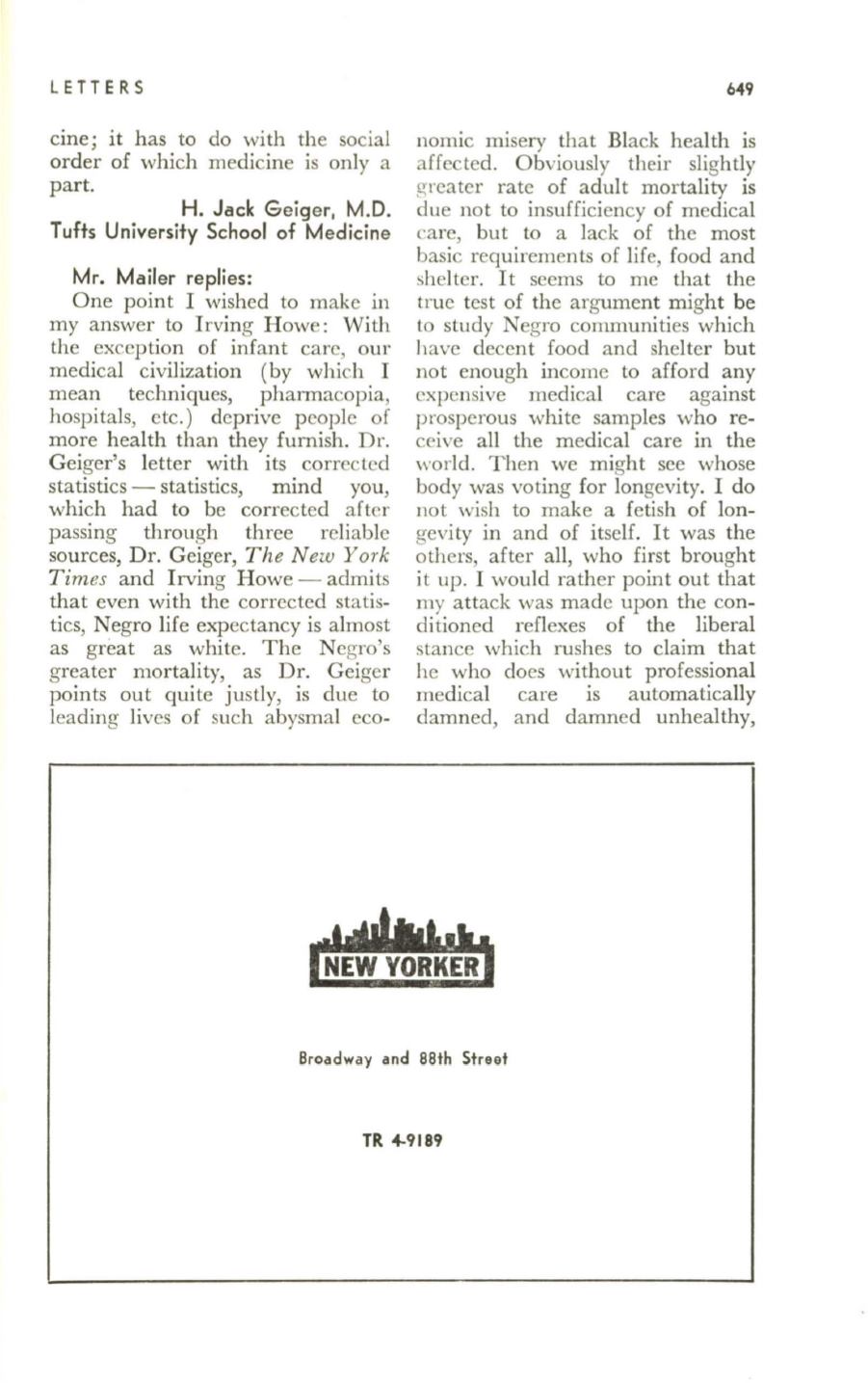
L ETTERS
cine; it has to do with the social
order of which medicine is only a
part.
H. Jack Geiger, M.D.
Tufts University School of Medicine
Mr. Mailer replies:
One point I wished to make in
my answer to Irving Howe: With
the exccption of infant care, our
medical civilization (by which I
mean techniques, pharmacopia,
hospitals, etc.) deprive people of
more health than they furnish . Dr.
Geiger's letter with its corrected
statistics - statistics, mind you,
which had to be corrected after
passing through three reliable
sources, D r. Geiger,
The New York
Times
and I rving H owe - admits
that even with the corrected statis–
tics, Negro life expectancy is almost
as great as white. The Negro's
greater mortality, as Dr. Geiger
points out quite justly, is due to
leading lives of such abysmal eco-
649
nomic misery that Black health is
affected. Obviously their slightly
greater rate of adult mortality is
due not to insufficiency of medical
care, but to a lack of the most
basic requirements of life, food and
shelter. It seems to me that the
true test of the argument might be
to study Negro communities which
have decent food and shelter but
not enough income to afford any
expensive medical care against
prosperous white samples who re–
ceive all the medical care in the
world. Then we might see whose
body was voting for longevity. I do
not wish to make a fetish of lon–
gevity in and of itself. It was the
others, after all, who first brought
it up. I would rather point out that
my attack was made upon the con–
di tioned reflexes of the liberal
stance which rushes to claim that
he who does without professional
medical care is automatically
damned, and damned unhealthy,
Broadway and 88t h Street
TR
4-9189


